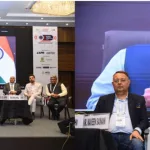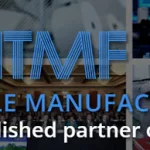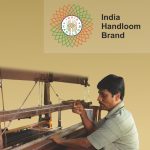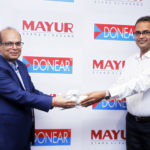More than 500 global brands have committed to using the latest version of the Higg Brand & Retail Module (BRM), a value chain sustainability assessment tool released today by the Sustainable Apparel Coalition (SAC) and its technology partner Higg.
Walmart; Patagonia; Nike, Inc.; H&M; and VF Corporation are among the companies that will use the Higg BRM over the next two years to gain a deeper understanding of their own operations and their value chain practices with the goal of improving social and environmental impacts and working together to fight the climate crisis.
Starting today through June 30, SAC member brands and retailers have the opportunity to use the Higg BRM to self-assess the social and environmental sustainability performance of their 2020 business and value chain operations. Then, from May to December, companies have the option to verify their self-assessments through an approved third-party verification body.
One of the five Higg Index sustainability measurement tools, the Higg BRM enables evaluation of the social and environmental impacts of brands across a wide range of business operations, from packaging and transportation of goods, to the environmental impact of stores and offices and the well-being of factory employees. The assessment measures 11 environmental impact areas and 16 social impact areas.
Through the Higg sustainability platform, companies of all sizes can uncover opportunities to improve their supply chains, from lowering carbon emissions, reducing water use, and ensuring supply chain workers are treated fairly.
“As part of our sustainability strategy, do.MORE, we have committed to continuously increase our ethical standards and by 2023 only work with partners who align with them,” said Kate Heiny, Director Sustainability at Zalando SE.
“We are excited to be collaborating with the SAC to scale a global standard around measurement of brand performance. By using the Higg BRM as the basis for our mandatory brand assessments, we have comparable sustainability data at brand level to jointly develop standards that move us forward as an industry.”
“The Higg BRM helped us come together and collect meaningful data points to continue our development of a responsible, purpose-driven brand,” said Claudia Boyer, Design Director for Buffalo Corporate Men.
“It allowed us to benchmark our current environmental performance and set bold targets for reduction of chemicals and water consumption in our denim production. The Higg BRM fueled our appetite for continuous improvement of our sustainability performance.”
“As Ardene grows and scales to new markets, it’s important for us to continue to prioritize social and environmental performance. What better way to guide us than with the Higg BRM, whose holistic approach reflects our own brand values of inclusivity and empowerment,” said Donna Cohen Ardene Sustainability Lead.
“The Higg BRM has helped us to pinpoint where we need to put more effort in order for us to reach our sustainability goals, and equally importantly has helped expand our focus on sustainability to our entire supply chain.”
In Europe, where corporate sustainability is at the forefront of the regulatory agenda, businesses must ensure their operations follow responsible practices. Companies can use the Higg BRM to get ahead of the curve when it comes to future legislative regulations. They can evaluate their value chain practices and their partners’ practices against the baseline of the anticipated policy following the OECD Due Diligence guidance for the apparel and footwear sector.
The latest version of the Higg BRM features a responsible purchasing practices section, emphasizing the importance of integrating due diligence into sourcing decision making processes. This update reflects the evolving nature of the Higg Index, and the SAC’s and Higg’s commitment to transforming consumer goods industries through the Higg tools and technology.
By design, the tools will continue to evolve, leveraging new data, technology, and regulations to help brands identify key risks and opportunities to reduce impact.
“In 2025 we aim to sell only more sustainable brands; defined as brands who have completed an OECD aligned due diligence process and who work to address their most material impacts with clear progress. The Higg BRM plays a critical role in our journey as it will offer us deep insight and data across all value chain aspects: from materials and production processes to logistics and end of life,” said de Bijenkorf Head of Sustainable Business, Justin Pariag.
“We will use this information to better understand our brand partners’ sustainability ambitions, progress, and challenges, so that we can highlight and celebrate their successes and work collectively on improvements.”
Another new feature of Higg BRM is its alignment with the Carbon Disclosure Project (CDP), facilitating the streamlining of data entry around carbon emissions. The CDP supports thousands of companies, cities, states, and regions to measure and manage their risks and opportunities on climate change, water security, and deforestation.
When companies use Higg, they will save time on carbon data collection, alleviating reporting fatigue. They can increasingly use Higg as a “one-stop-shop” for sustainability assessment and data analytics and leverage comprehensive insights without having to duplicate efforts already undertaken for other assessments.
To gain the most out of the Higg tools and accelerate sustainability improvement, companies integrate them into their internal supply chain and product life cycle management systems through API technology. Future plans for the Higg BRM include integration with other Higg tools and systems to further simplify data collection efforts while providing a full view of end-to-end supply chain impacts and improvement opportunities.
“Benetton Group is dedicated to becoming an agent of social and environmental change, creating increasingly sustainable products and promoting the development of individuals and their communities,” said Roberto Taiariol, Internal Audit & Sustainability Director, Benetton Group.
“We use the Higg BRM as a tool to measure the social and environmental performance of our value chain and to plan for the future. Over the coming years sustainability will be a driver of development and the BRM assessment will help us invest in more sustainable products, build a supply chain that is even more respectful of the environment and workers’ rights, make our stores and campus more energy efficient, and commit to reduce waste.”
Aligned measurement and reporting standards globally will play a crucial role in enabling the industry to more effectively address key global sustainability challenges, including climate change. The SAC, working together with Higg, will continue to evolve and develop the Higg BRM in order to make sustainability assessments even more widely accessible.
“The Higg BRM offers our industry better transparency and focus so that we can work constructively together on a more sustainable future and this focus is needed as there is still a long road ahead,” Pariag said.







